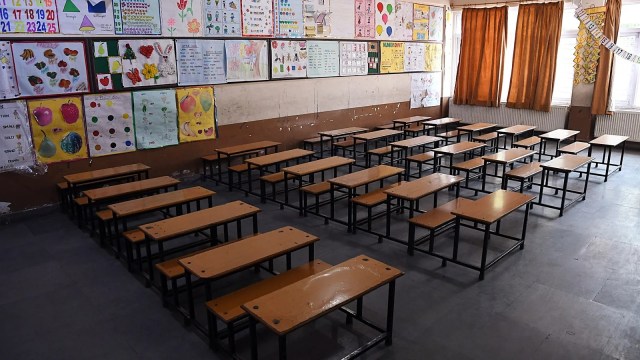Minimum age for admission in Class 1 now 6 as Delhi govt adopts NEP framework
Under the new structure, the existing two-year pre-primary setup, including nursery and kindergarten, will be expanded into a three-year system comprising Balvatika 1, 2 and 3
 Delhi schools will now follow a three-year pre-primary system, with Class 1 admission age set at six years, in line with the National Education Policy (NEP) 2020. (Source: File)
Delhi schools will now follow a three-year pre-primary system, with Class 1 admission age set at six years, in line with the National Education Policy (NEP) 2020. (Source: File)Now, parents seeking admissions for their children in Class 1 in the schools in Delhi will have to wait until the child turns six. The Directorate of Education (DoE) formalised the new rule through a circular issued on Friday under the National Education Policy (NEP) 2020’s framework for the foundational stage. The revised policy comes into effect from the 2026-27 academic session.
Under the new structure, the existing two-year pre-primary setup, including nursery and kindergarten, will be expanded into a three-year system comprising Balvatika 1, 2 and 3. This will be followed by Class 1 at the minimum age of six and above.
The restructuring will be implemented in phases, according to the circular issued by the DoE to all government, aided, and recognised private schools in Delhi. “The age criteria as detailed in the circular will be implemented in phases starting from the academic session 2026-27,” the order stated. It also clarified that the new age norms will not apply to students already enrolled during the 2025-26 session.
The schools, from the next academic session, will start admitting children aged six and above to Class 1, and three years and above to Balvatika 1. For Balvatika 2 (for four-year-olds) and Balvatika 3 (for five-year-olds), admissions will be done in 2027-28 and 2028-29, respectively, in line with the three-year pre-primary structure before Class 1.
The DoE has said that this phased approach will help schools make the necessary infrastructural and administrative adjustments for the additional year at the pre-primary level.
Heads of schools will be permitted to grant up to one month’s relaxation in the minimum or maximum age limits. Children transferring from other recognised schools with valid school-leaving certificates and report cards will be exempted from the rule, the circular said.
Schools have also been directed to inform parents well in advance and ensure that the revised age criteria are reflected in admission notices and forms.
The move, as per the DoE officials, aligns with the NEP 2020 framework and the Right to Education (RTE) Act, 2009. Both prescribe six years as the minimum age for entry into Grade 1.
The change marks Delhi’s adoption of the NEP’s ‘5+3+3+4’ schooling design, replacing the traditional 10+2 structure. The first five years (ages 3 to 8) form the foundational stage comprising three years of pre-primary education followed by Classes 1 and 2.
The NEP emphasises that these early years are crucial for cognitive and socio-emotional development and should focus on play-based and activity-based learning rather than formal academics.
While several states, including Karnataka, Andhra Pradesh, and Assam, have already moved to the 6+ entry age, Delhi has so far continued with its existing policy under the Delhi School Education Rules, 1973, allowing children below six to enter Class 1.
The Union Ministry of Education has been urging states and Union Territories since 2021 to align their entry age with the NEP 2020 and the RTE framework for uniformity across the country.
The issue of school entry age was first highlighted in 2022 when Kendriya Vidyalayas raised the minimum age for Class 1 to six years, triggering a petition by parents in the Delhi High Court.
Both the High Court and the Supreme Court upheld the decision, noting that the revision was in keeping with the NEP’s objectives.







